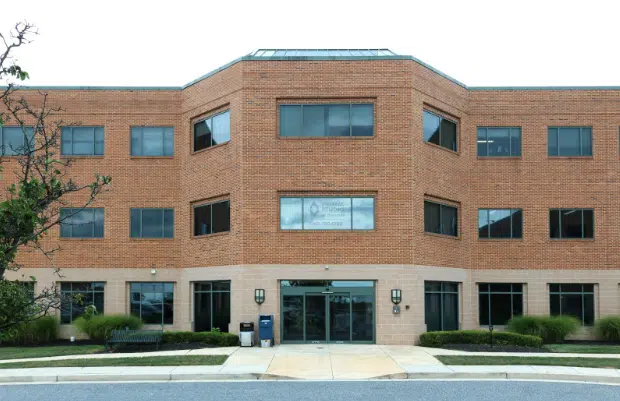Dental emergencies can happen at any time, and when they do, it’s important to act quickly and calmly. Whether it’s a sudden toothache or a more serious situation like a knocked-out tooth, knowing how to manage these emergencies until you can see a professional can make a big difference in the outcome. At Dental Studio at Rosedale, we understand how stressful these situations can be, which is why we’ve put together this guide on how to handle the most common dental emergencies before you visit an emergency dentist in Rosedale.
1. Toothache
A toothache is one of the most common dental issues, and while it’s not always an emergency, it can certainly become one if the pain is severe. The pain could be caused by an infection, a cavity, or gum disease, and if left untreated, it could lead to more serious problems.
How to handle it:
- Rinse with warm salt water to clean the area and reduce swelling.
- Use over-the-counter pain relief like ibuprofen (ensure you follow the directions on the packaging).
- Apply a cold compress to the outside of your cheek to numb the pain.
- Avoid chewing on the affected side until you can see your Rosedale emergency dentist.
If the pain persists for more than a day or is accompanied by swelling, fever, or trouble breathing, it’s time to visit an emergency dentist in Rosedale to rule out an infection or a more serious underlying issue.
2. Knocked-Out Tooth
A knocked-out tooth can be terrifying, but acting quickly can save the tooth. Whether from an accident, sports injury, or a fall, if you lose a tooth, every second counts.
How to handle it:
- Find the tooth: Pick it up by the crown (the top part) and avoid touching the root.
- Rinse gently: If the tooth is dirty, rinse it under water for no more than 10 seconds. Do not scrub it or remove any tissue attached to the root.
- Reposition the tooth: If possible, gently place the tooth back into its socket. Bite down gently to hold it in place.
- Keep the tooth moist: If you cannot reinsert it, place it in a cup of milk or saliva (avoid water, as it can damage the root).
- See an emergency dentist in Rosedale immediately: The sooner you see a dentist, the higher the chances are of saving the tooth.
If you are unable to save the tooth, your Rosedale emergency dentist may recommend a dental implant or bridge to restore your smile.
3. Chipped or Broken Tooth
A chipped or broken tooth can happen from biting into something hard, an accident, or even from grinding your teeth. While it might not cause severe pain, it can still be an emergency, especially if the break exposes the nerve.
How to handle it:
- Rinse your mouth with warm water to clean the area.
- Apply a cold compress to reduce swelling if there is any.
- Use over-the-counter pain relief if needed.
- Cover the sharp edge of the broken tooth with dental wax or a piece of sugarless gum to avoid injuring your tongue or cheek.
- Visit your emergency dentist in Rosedale as soon as possible to evaluate the damage and determine if a crown, filling, or other treatment is needed.
Delaying treatment could lead to infection or further damage to the tooth, so it’s important to seek care promptly.
4. Lost Filling or Crown
If you lose a filling or crown, the exposed tooth can become sensitive to air, water, and food. It can also leave your tooth more vulnerable to infection or further decay.
How to handle it:
- Keep the crown or filling in a safe place,if possible, bring it to your appointment with your dentist.
- Temporarily replace the filling or crown: Over-the-counter dental cement can be used to temporarily reattach the crown or filling. If you don’t have cement, sugar-free gum can work as a short-term solution.
- Avoid chewing on the affected side until you see your dentist.
- Contact an emergency dentist in Rosedale as soon as possible to prevent further damage or discomfort.
A lost crown or filling should be replaced promptly to protect the underlying tooth and maintain proper function.
5. Severe Gum Pain or Swelling
Swollen or painful gums can result from a variety of issues, such as gum disease, a tooth infection, or even a food particle lodged between your teeth. Severe swelling or pain can also be indicative of an abscess, which requires immediate care.
How to handle it:
- Rinse with warm salt water to help reduce swelling and clean the affected area.
- Use over-the-counter pain relievers to manage discomfort.
- Apply a cold compress to the outside of your mouth or cheek to reduce swelling.
- Avoid hot or cold foods that may trigger sensitivity.
- Seek care from a Rosedale emergency dentist to identify the cause of the pain and treat any underlying issues, such as infections or abscesses.
Ignoring severe gum pain can lead to further complications, such as spreading infections or tooth loss. If you experience severe pain, swelling, or fever, seek immediate attention from your emergency dentist in Rosedale.
Dental emergencies are never planned, but knowing how to respond in these situations can help prevent further damage and provide relief until you can see a professional. At Dental Studio at Rosedale, our team is here to provide emergency dental care when you need it most. Whether you’re dealing with a toothache, a lost crown, or a knocked-out tooth, we’re ready to offer expert care and guidance. Remember, if you’re ever in doubt about the severity of your dental emergency, don’t hesitate to contact our office or visit an emergency dentist in Rosedale immediately. Your oral health is our priority, and we’re here to help you get back on track as quickly as possible.


